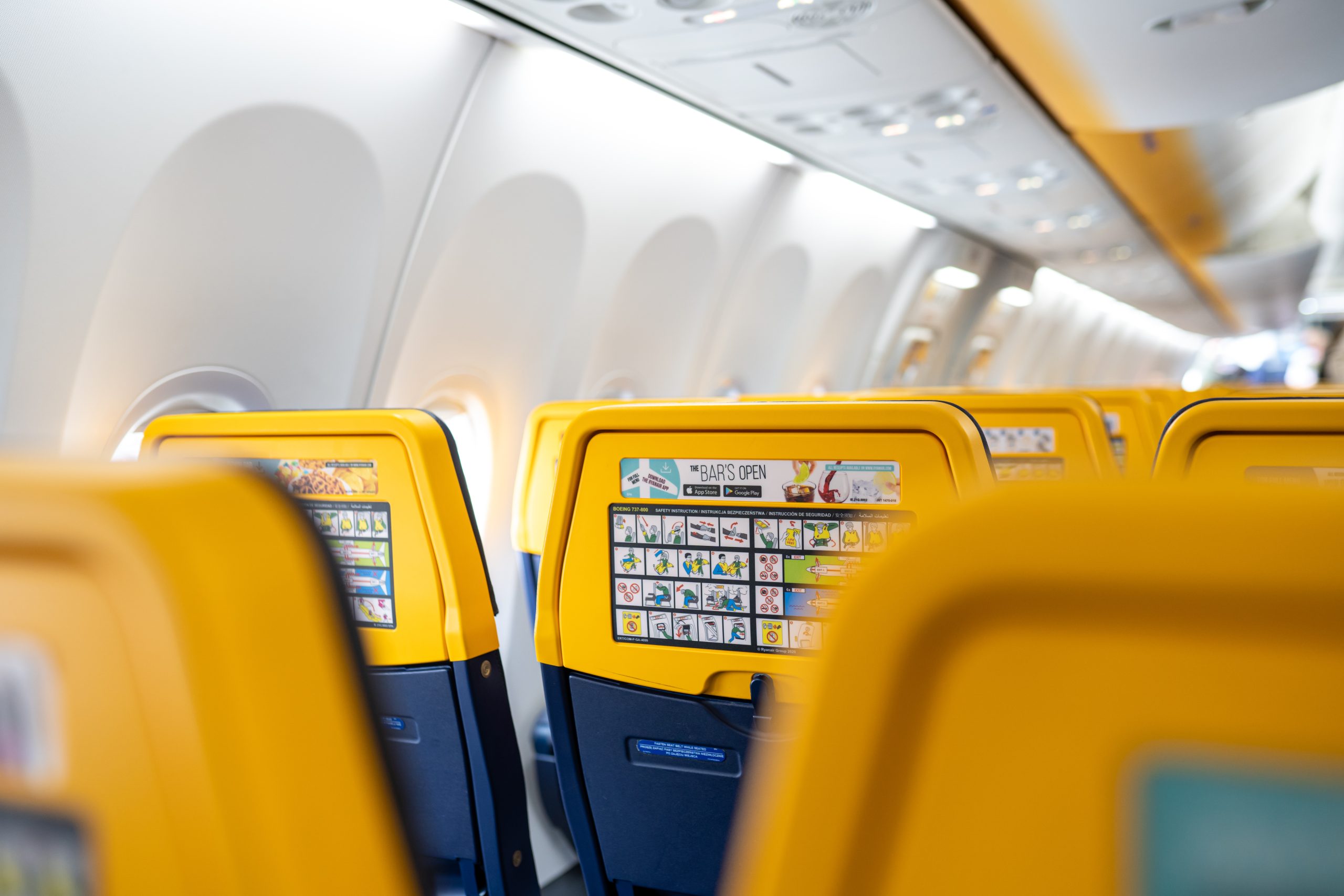
More than a 10-hour flight for a 2-hour meeting? No, thank you.
I confess, I used to take quite a few business flights. That was before the pandemic completely transformed the way we understand meetings. At the time, taking a round-trip flight to Berlin from Brussels on the same day didn't seem strange to anyone. Now, you have to find very good reasons to justify why you can't have that meeting online. It appears that this change in mindset is growing.
Three years after our understanding of the working life changed, the debate is now open: to fly or not fly? We see in the media a large number of surveys asking companies whether they plan to fly for work again. And it is a legitimate question, given that the change in behavior has been such that business travel has not returned to pre-pandemic levels. In fact, the Travel Smart’s Emissions Tracker shows that almost half of big companies haven’t come back to 2019 levels of flying.
Why keeping long haul flights low is key
Despite the wide variety of opinions and different surveys, we must turn to the facts: latest figures from Global Business Travel Association’s (GBTA) forecast shows that 2022 global business travel bookings are at an estimated average of 76% of 2019 levels for domestic flying, and 70% for international. So the number of long-haul flights are even lower than the short haul ones, which suggests that people may be asking themselves: does it make sense to take a more than 10h trip for a 2h meeting?
It doesn’t seem that companies like Arcadis and Amundi, which are keeping their levels of flying low, have witnessed negative impacts on their business. Arcadis, the Dutch consulting giant with almost 30.000 employees, praises the effectiveness of “virtual working” in their 2023 CDP questionnaire. Tagged as a “very time- and cost-efficient solution”, the company wants to use collaborative technologies to “avoid a return to historical levels of travel and reduce on the long term”. Similarly, French asset manager Amundi reflects in their Universal Registration Document that “the sharp reduction in business travel between 2020 and 2022 demonstrated Amundi’s ability to continue its development despite the restrictions”.
On the one hand, I wonder whether CEOs and travel managers that are expecting their companies to increase their flying are assessing the return on investment of these intercontinental and extremely polluting flights. 8% of the flights departing the European Union and the United Kingdom, those longer than 4000 km, are responsible for 50% of the European Union’s aviation emissions.
Moreover, skyrocketing inflation levels is also forcing us to rethink our spending. In the EU, the price of energy has increased by 10.2%, and this increase alone has a huge impact on the price of transport, and jet fuel specifically. The price of airline tickets alone has increased 30% on average in Europe. When you travel for work, the price of the airfare is only adding to the full amount of what your company spends on getting you there. Accommodation and per diems just add more zeros to the bill. So, is it really worth the investment?
And on the other hand, employee health and welfare cannot be left out of this equation. Some companies are launching mental health support for business travelers. A poll by the Travel Smart Campaign in 8 countries in Europe and the United States shows that over half of the surveyed travelers report the benefits of reduced travel on their work-life balance and health. The latest GBTA poll confirms that almost one-third of European corporate travelers want to travel less today than they did a year ago. Again, the contradiction seems so obvious that we just need a huge sign at the entrance of the Brussels-New York flight telling us “this is not a good idea”.
So it doesn’t only seem absurd, but a luxury that we can’t afford. Especially when the Intergovernmental Panel on Climate Change (IPCC) has called for rapid, deep cuts if we want to keep global warming below 1.5°C and avoid a multisystemic collapse. The next two years are crucial, and reducing long-haul aviation provides the greatest potential to avoid emissions, while many short-haul flights can effectively be replaced by rail alternatives.
Purposeful travel
While commercial aviation seems to be dangerously close to 2019 levels (80%), business flying alone stopped making sense. Flying needs to bring an added value, to bring purpose to the company and to the employee. Purposeful travel means being aware of the climate impact we are having by taking planes. It means being responsible and starting to truly evaluate whether it is really worth the ecological footprint that is going to remain on the planet.
Now I don’t fly so much because both my organisation and I have understood that I don’t have to fly 10 hours to the other side of the planet for a 2-hour meeting. That in essence is just flying less, and achieving more.
